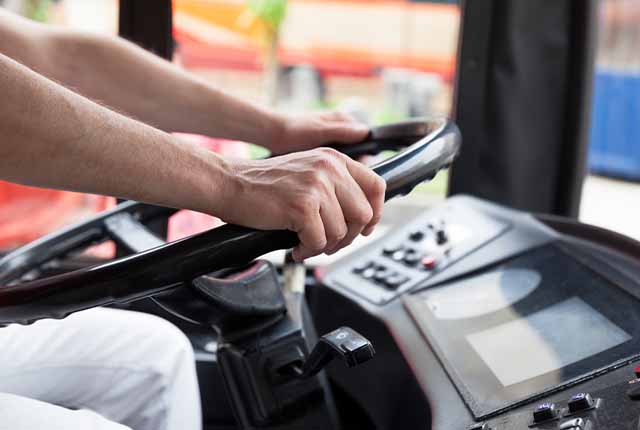
- November 23, 2020
- Attorney Matt Stoddard
- Premises Liability
Several MARTA bus drivers reported to Atlanta’s Channel 2 Action News last September that they have been feeling unsafe at work, following repeated assaults from passengers. Upon investigation, Channel 2 was able to identify upwards of 20 such violent or threatening altercations over the previous three months, although drivers believe even that figure to be unrealistically low.
Incidents ranged from punching and shoving, to spitting (in times of high contagion risk), to sexual exhibitionism. One man, armed with a hammer, even succeeded in hijacking a bus for a short time. He drove off with the bus, leaving the driver and some passengers behind, before later being apprehended.
Bus Drivers Say Violence Increased Following COVID-19 Response
Drivers say the problem of passenger violence intensified after MARTA eliminated bus fares as part of their COVID-19 response. The move was intended to reduce transmission risks at the high-touch payment terminals. It’s not clear why the lack of a fare would lead to violence — MARTA was operating below its usual capacity throughout its fare-free period, so it doesn’t seem to have been a simple matter of volume. The shift might reflect larger social tensions accompanying the pandemic.
MARTA did not require passengers to wear masks until July, eliminating another possible reason for April’s reported increase in driver assaults. In fact, the stated reason for exposing drivers and commuters alike to the infection risk of unmasked passengers was that attempting to enforce mask regulations might put drivers at even greater risk of violence.
However, MARTA’s remarks to the press about finally instituting a mask policy in July did not include specific plans for protecting drivers. Given that violence toward drivers was already apparently spiking, without them yet taking on the role of regulating mask-wearing, that’s a serious omission.
MARTA’s Response Has Been Underwhelming
After the Channel 2 investigation, MARTA did release a statement expressing concern for their drivers’ well-being, and promising to deploy the MARTA police on all busses following its 10 busiest routes, during the week in September when fares were to be reinstituted.
That was of course a sensible week to provide extra protection; payment disputes could easily become instigating factors in violent altercations. However, there was no reason to expect that the need for protection would disappear at the end of that first week of fare collection, not when drivers were already feeling unsafe when the fare was free.
MARTA Security’s Ineffectiveness Goes Beyond the Pandemic’s Special Circumstances
Before the fare suspension, before the danger of COVID-19, before masks were even a topic of discussion, MARTA’s security record was already problematic. From 2014-2018, there were an average of 84 aggravated assaults, 50 robberies, and one rape every year on MARTA vehicles and property. That’s according to the MARTA police’s own arguably understated statistics. If COVID-19 were to vanish tomorrow, it would be safe to assume that MARTA drivers would still need better protection than they are receiving.
Although the drivers who spoke with Channel 2 noted they were less interested in taking legal action than in simply receiving clearer communication from MARTA management, The Stoddard Firm is available to provide a free consultation to any driver, or passenger, who has been hurt as a result of inadequate MARTA security.

 Matt Stoddard is a professional, hardworking, ethical advocate. He routinely faces some of the nation’s largest companies and some of the world’s largest insurers – opponents who have virtually unlimited resources. In these circumstances, Mr. Stoddard is comfortable. Mr. Stoddard provides his strongest efforts to his clients, and he devotes the firm’s significant financial resources to presenting the strongest case possible on their behalf. Matt understands that his clients must put their trust in him. That trust creates an obligation for Matt to work tirelessly on their behalf, and Matt Stoddard does not take that obligation lightly. [
Matt Stoddard is a professional, hardworking, ethical advocate. He routinely faces some of the nation’s largest companies and some of the world’s largest insurers – opponents who have virtually unlimited resources. In these circumstances, Mr. Stoddard is comfortable. Mr. Stoddard provides his strongest efforts to his clients, and he devotes the firm’s significant financial resources to presenting the strongest case possible on their behalf. Matt understands that his clients must put their trust in him. That trust creates an obligation for Matt to work tirelessly on their behalf, and Matt Stoddard does not take that obligation lightly. [